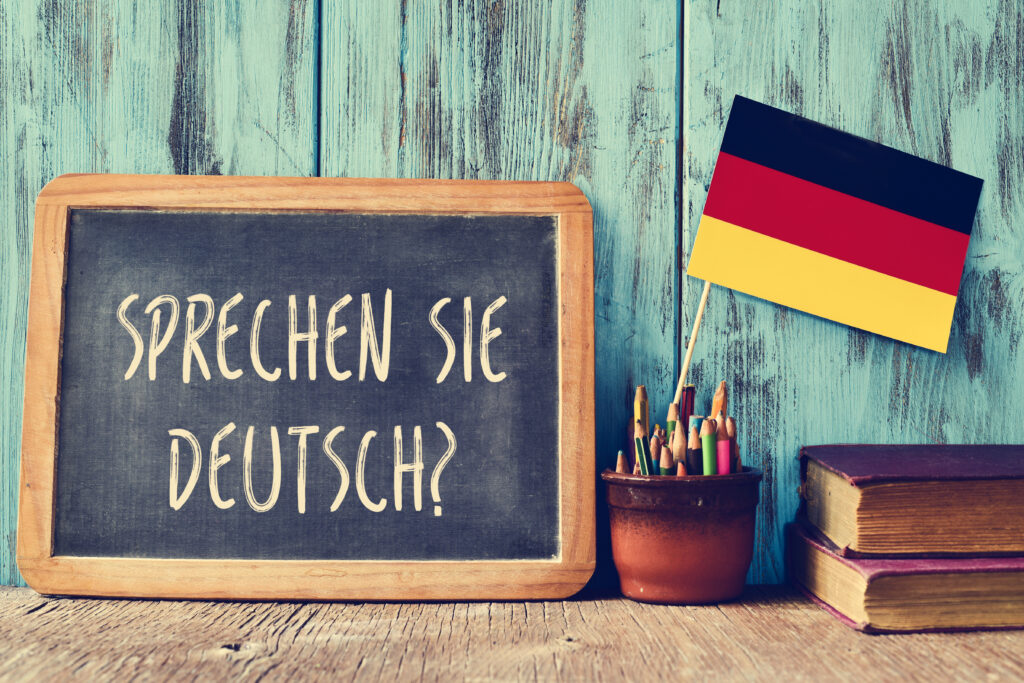
Planning a trip to Germany and want to know how to greet a local? Check out this post for the 10 most common German greetings and introductions.
As someone who’s planning to become an Au pair in Germany, learning German greetings and introductions is always a must. This is because they help you communicate with the locals once you’re there and they’re great conversation starters before you ask any question.
In fact, a part of me wishes I did my research on French greetings before I visited France, since their knowledge of English there wasn’t as great as I hoped. For the most part, many French people stared at me when I tried to speak to them in English and one Afro-French even had the audacity to shout at me in French.
So, if you’re planning to visit Germany and want to learn how to greet the locals, you’ve come to the right place. This post alone highlights the most common German greetings and introductions in Germany and how they are used.
German Language & Culture Series
P.S. This is a post in my German Language & Culture series. Here is the complete series:
German Addresses: German Address Format: How to Mail a Letter to Germany
German Time: The Non-Native Speaker Guide to Telling Time in German
German Greetings: The 10 Most Common German Greetings and Introductions
German Numbers: The Ultimate Guide for Learning German Numbers 1 to 100
German Alphabet: The Best Alphabet Guide of All Time
German Days of the Week: A Beginner’s Guide to the Days of the Week in German
German Emails: The American Guide to Writing German Emails
German Body Parts: A Step-by-Step Guide to the Body Parts in German
German Vegetables: The Ultimate Guide to Vegetables in German
German Pronouns: The American Guide to Learning German Pronouns
German Colors: Colors in German: A One Stop Resource
German Fruits: Fruits in German: What You Need to Know
German TV: 10 German TV Shows You Need to Watch
German Curses: German Swear Words: What You Need to Know
German Idioms: 10 German Idioms Every American Should Know
Guten Tag (german greetings and introductions)
Pronunciation: guten Tag [ˌɡuːtn̩ ˈtʰaːkʰ]
Known as the most common German greeting for native English speakers, Guten Tag is a formal way of saying “hello” in Germany. It is literally translated as “good day” in English and it is primarily used by Germans from midday to 6pm.
So, if you run into a German local in the middle of the afternoon and want to say “hello”, Guten Tag would be the appropriate greeting to use in this case. In fact, many Germans even shorten Guten Tag as Tag as a way of saying “Hey!”.
Hallo (german greetings and introductions)
Pronunciation: hallo [haˈloː]
Known as the simplest way to greet someone in German, Hallo is another greeting that can be used to greet a local in Germany. In fact, it can be used at any part of the day or night in Germany as well as in informal and formal situations.
So, if you’re looking for a German greeting that can be used in any situation, I highly recommend saying Hallo. It is very similar to the English greeting “hello” so it shouldn’t be that hard to remember.
Guten Morgen (german greetings and introductions)
Pronunciation: guten Morgen [ˈɡuːtən ˈmɔʁɡən]
Known as a common German greeting in the morning, Guten Morgen is another way to greet a local in Germany. It is literally translated as “good morning” in English and it can be used to greet anyone before midday.
So, if you are not sure of how to greet a German local early in the morning, I highly recommend using the greeting Guten Morgen. Even though it is a formal greeting on its own, it can be used to greet German friends and family too.
Guten Abend (german greetings and introductions)
Pronunciation: guten Abend [ˌɡuːtn̩ ˈaːbənt]
Known as a common German greeting in the evening, Guten Abend is another way to greet a local in Germany. It is literally translated as “good evening” in English and it can be used to greet anyone from 6pm to bedtime.
So, if you’re not sure of how to greet a German local in the evening, I highly recommend using the greeting Guten Abend. Like Guten Morgen, even though it is a formal greeting, it can be used to greet German family and friends too.
Gute Nacht (german greetings and introductions)
Pronunciation: gute Nacht [ˌɡutə ˈnaxt]
Known as a common farewell in the evening, Gute Nacht is a way to say “goodbye” to a German in Germany. It is literally translated as “good night” in English and it can be used as a farewell before going to bed.
So, if you’re unsure of how to say goodbye to your German family and friends before going to bed, I highly recommend using the farewell Gute Nacht. Even though it’s not used as a greeting in Germany, it is typically grouped with some previously mentioned ones like Guten Morgen, Guten Tag and Guten Abend.
Moin (german greetings and introductions)
Pronunciation: Moin [mɔːɪn]
Known as an informal way to say “hello”, Moin is a great way to greet a local in northern Germany. It is suspected to originate from the low German word “moi” in Germany which translates to good in English.
So, if you’re in northern Germany, specifically Hamburg, and you want to greet a German friend, I highly recommend using the greeting Moin. It can be used to greet people you know all day long and it has two common variations: moin moin and moinsten.
Servus (german greetings and introductions)
Pronunciation: Servus [ˈzɛɐ̯vus]
Known as a way of saying hello and goodbye in German, Servus is a great way to greet a local in southern Germany. It comes from the word “servant” in Latin and it can be translated as “at your service” in English.
So, if you’re in southern Germany, specifically Bavaria, and you want to greet a local, I highly recommend using the greeting Servus. Even though it’s common in the south of Germany, it is also used in Austria too.
Grüß Gott (german greetings and introductions)
Pronunciation: grüß Gott [ɡʁyːs ˈɡɔt]
Known as a formal way of saying “hello” in German, Gruss Gott is another way to greet a local in southern Germany. The greeting can be literally translated as “greetings (from) God” and it corresponds to the English phrase “God bless you”.
So, if you’re in southern Germany, specifically Bavaria, and you want to greet a local, I highly recommend using the greeting Gruss Gott. However, since this greeting is mostly used by seniors, you should consider the age and religious beliefs of the person you want to greet before you use it.
Wie geht’s? (german greetings and introductions)
Pronunciation: Wie geht’s [viˈɡeːts]
Used after a greeting for small talk, Wie geht’s is a casual way to start a conversation with a local in Germany. It can be literally translated as “How’s it going?” in English and it is an abbreviation of its informal (Wie geht’s dir?) and formal (Wie geht es Ihnen?) counterparts.
So, if you want to spark up some small talk with a German friend in Germany, I highly recommend using the phrase Wie geht’s to start. The phrase is more informal than its two counterparts but it’s very polite.
Na (german greetings and introductions)
Pronunciation: Na [na(ː)]
Known as an interesting way to greet a local, Na is another great way to greet someone in northern Germany. The greeting can be literally translated as “well” in English and it’s the shortest way of saying “Hello, how are you?” in German.
So, if you’re in northern Germany and you would like to greet someone in an informal setting, I highly recommend using the greeting Na. It’s the easiest way to greet someone in one versatile syllable and you can use it as a response too.
German Greetings and Introductions FAQs
Overall, to end this post, I would like to answer some frequently asked questions you might have about greetings and introductions in Germany!
How do you show respect in German?
One way you can show respect in German is by using Sie, the formal version of the third person singular. It means “you” in English and it is used to address strangers, business associates, and acquaintances.
What is “What’s up? in German slang?
The German equivalent to “What’s up” in English would be Was geht ab? in German.
How do you ask a German if they speak English?
If you want to ask a German local if he or she speaks English you can say “Sprechen Sie Englisch?” After asking it, here is what you can expect as a response:
- Ja, ich spreche Englisch (Yes, I speak English)
- Natuerlich! (Of course)
- Ja, ich spreche ein bisschen Englisch (Yes I speak a little English)
- Nein (No)
- Ja, aber ich lerne noch (Yes, but I’m still learning)
- Ja, ein bisschen (Yes, a little)
- Ja, aber sprechen Sie bitte langsam (Yes, but please speak slowly)
In the end, I really hope you enjoyed reading this post about the 10 most common German greetings and introductions in Germany. Please let me know in the comments down below which greeting you liked the most. I would love to hear from you! 🙂
Love this post? Pin it for later!

Follow me on Instagram!











Leave a Reply